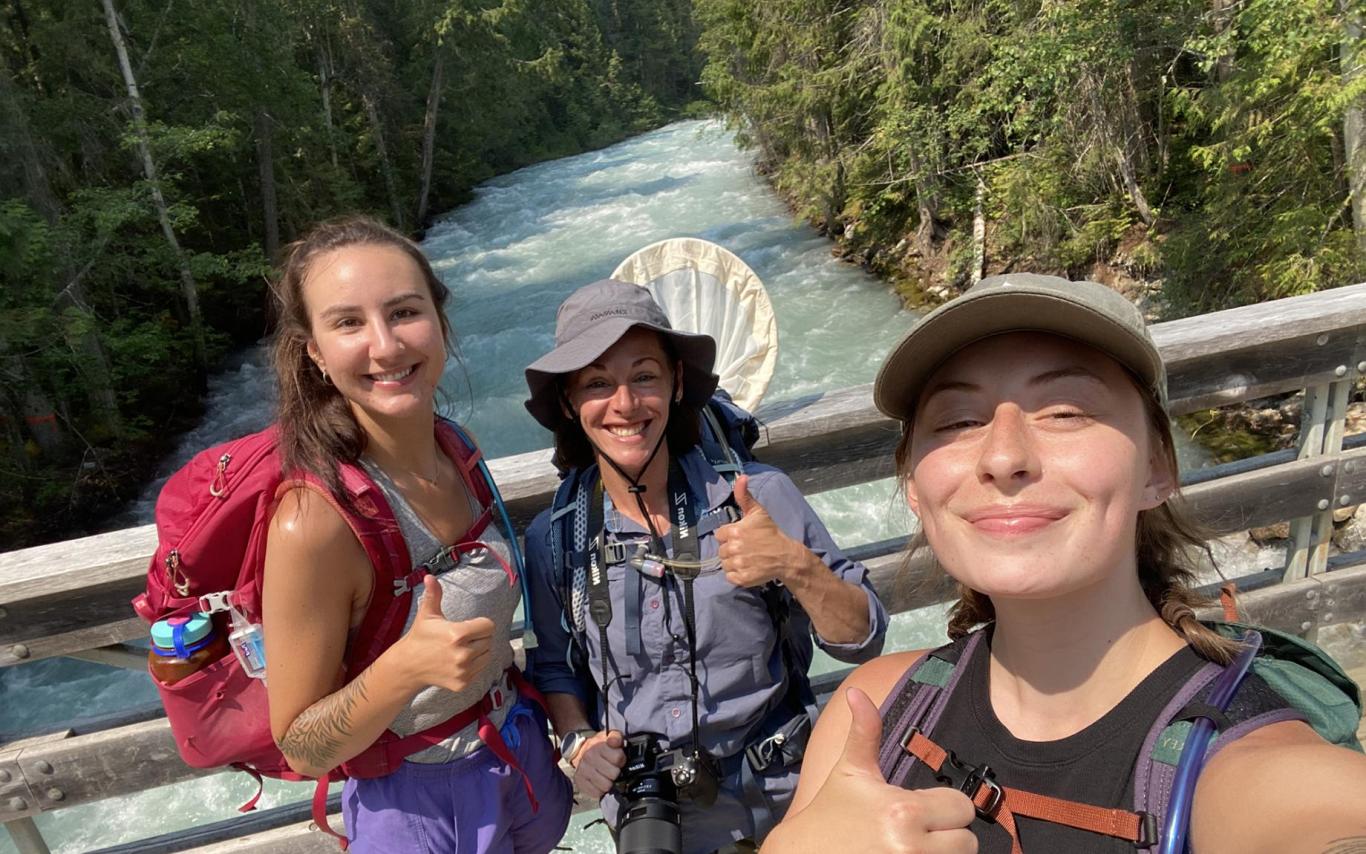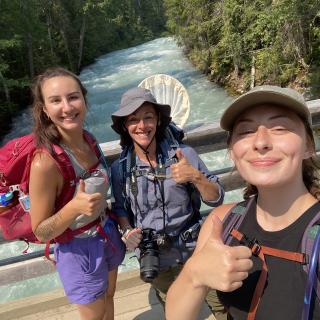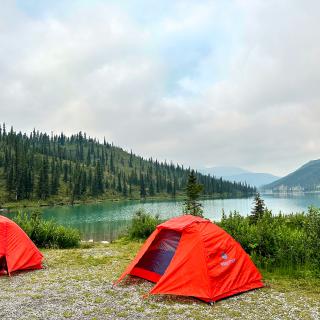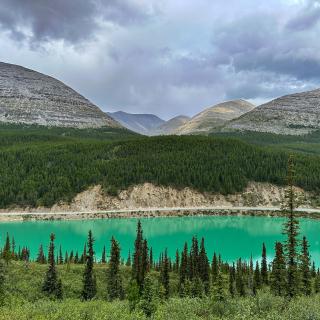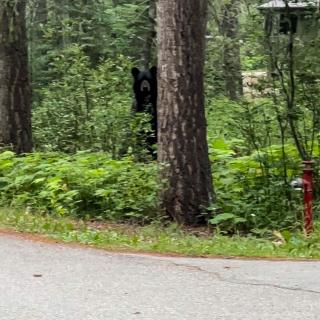Emma Peterson and Lizzy Schafers share their research experience
Emma Peterson and Lizzy Schafers visited remote BC parks this summer to count and catalogue plants. Their work was part of a biodiversity survey research project overseen by Dr. Jasmine Janes, a VIU Biology Professor.
The summer research experience allowed both students to gain hands-on skills outside a classroom setting. For Lizzy, a Bachelor of Science student majoring in Biology, the experience reinforced her plans to go to grad school and study botany.
“This is the path I want to be on. I’m focused on that, and this experience solidified that for me,” she says, adding that she could feel her progression as a scientist during the work. “I gained a wide array of skills in relation to botany fieldwork. What it looks like day to day and everything that I would need to do plant identification.”
Lizzy says she can’t pinpoint one exact highlight from the experience, but she feels lucky to conduct research alongside two other women in science, specifically in botany.
“It’s nice to work alongside other women together. That feels special,” says Lizzy. “It’s great to learn from Jasmine because she is so enthusiastic and knowledgeable about it that you can’t help but also get excited about it when you learn from her.”
The work allowed Emma to apply her learning in the field to gain new skills for the future.
“The skills that I’ve learned are helpful for a future job as well as reassuring me I’m on the right path,” says Emma. “I definitely want to do some kind of master’s degree within this type of field.”
Emma says students looking for research opportunities should go for it, be persistent and talk to their professors.
“Find out what opportunities there are and try it out. Even if it isn’t your exact realm of study,” says Emma. “It’s a cool experience regardless and it will either help you solidify what you want to do or what you don’t want to do.”
Why are biodiversity surveys important?
Learning about the species richness of an area is helpful for management practices within these protected parks. The surveys give baseline information about species in the area.
The research project was conducted thanks to a BC Parks Living Lab Program grant from BC Parks and the Ministry of Environment and Climate Change Strategy. It included surveys in four remote provincial parks in BC. It included:
- Duffy Lake Provincial Park,
- Mount Robson Provincial Park,
- Crooked River Provincial Park, and
- Stone Mountain Provincial Park.
“It’s helpful for the province to understand what is there. We can analyze the data to understand what the species richness is in each park. What different levels of biodiversity are present and if one park has more threatened species than another,” says Jasmine, adding that given how remote the parks are there isn’t a lot of data available for them. “On the flip side if we find there’s a lot of invasive species in a particular park, that can help BC Parks make decisions about how to manage them.”
